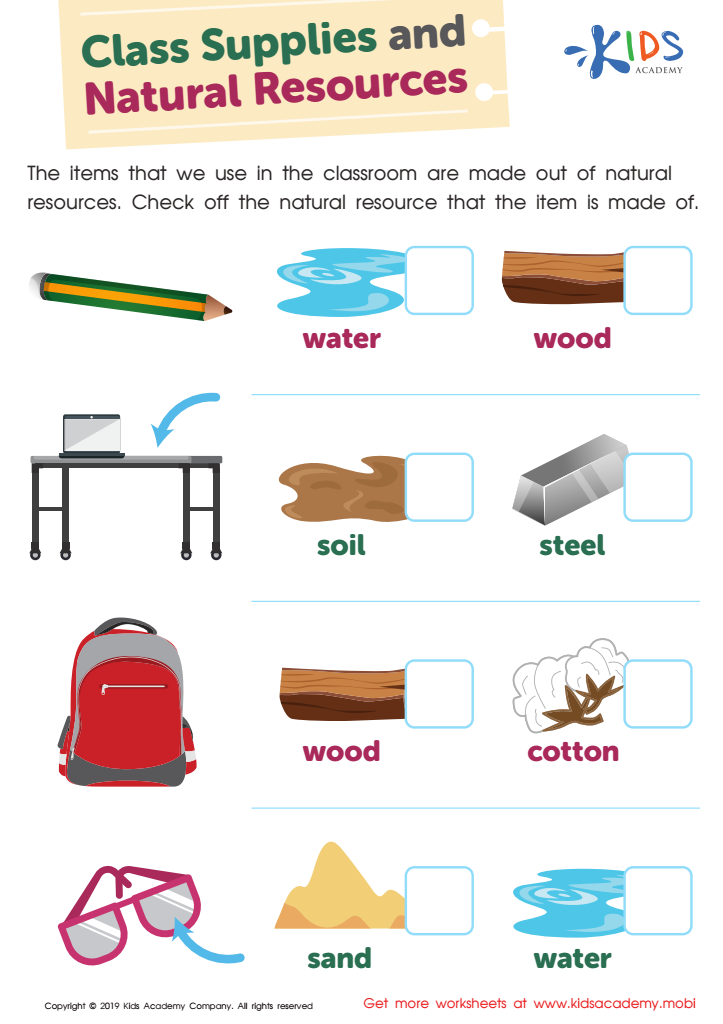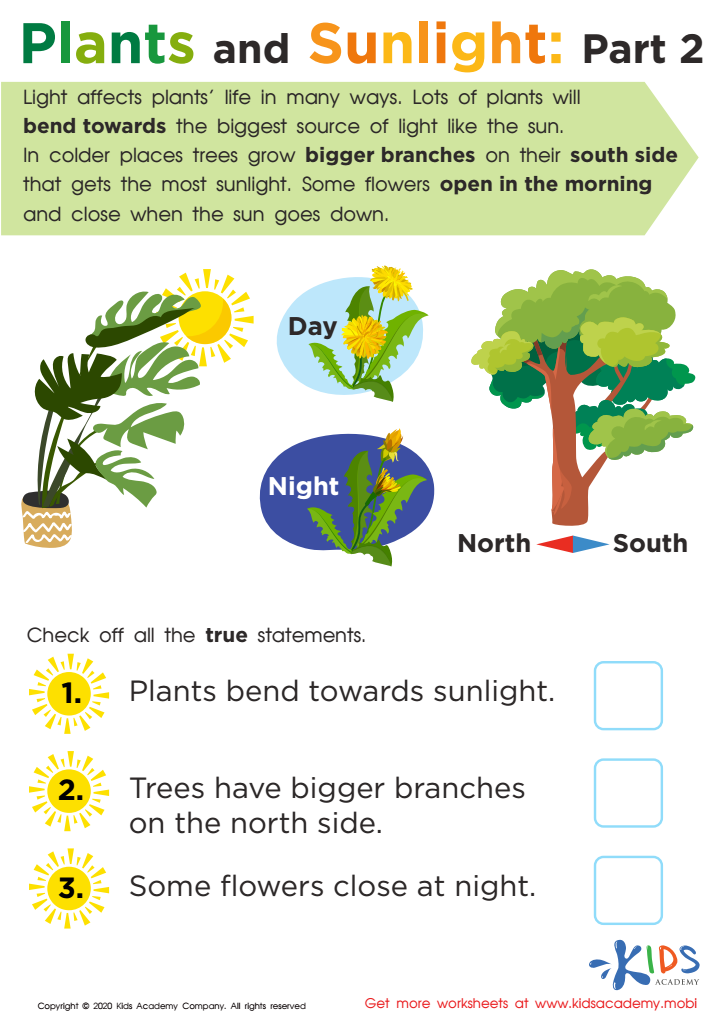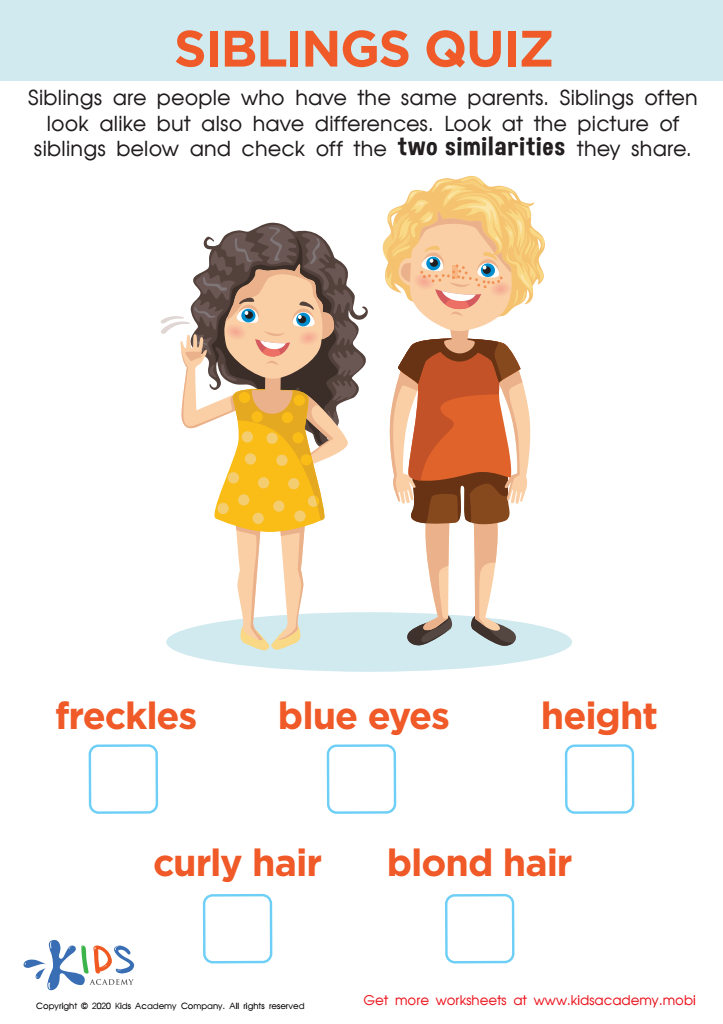Logical Reasoning Normal Plants and Animals Worksheets for Ages 4-7
4 filtered results
-
From - To
Enhance your child's critical thinking skills with our "Logical Reasoning Normal Plants and Animals Worksheets" designed for ages 4-7. These engaging worksheets help young learners explore the fascinating world of plants and animals through fun, interactive activities that stimulate their logical reasoning and observational skills. Each worksheet introduces fundamental concepts in a clear and approachable manner, fostering a love for science from an early age. Ideal for both classroom use and homeschooling, our worksheets are crafted to support the developmental stages of young children, ensuring they build a strong foundation in science while enjoying the learning process. Suitable for early learners aiming to sharpen their problem-solving abilities in an engaging and educational way.


Sorting Animals in 3 Groups Worksheet


Class Supplies and Natural Resources Worksheet


Plants and Sunlight: Part 2 Worksheet


Siblings Quiz Worksheet
Parents and teachers should care about fostering logical reasoning related to normal plants and animals for children aged 4-7 because it lays crucial groundwork for their cognitive and scientific development. During these formative years, children's brains are rapidly growing, making it an ideal time to introduce basic concepts about the natural world.
Teaching young kids the logical reasoning behind how plants grow and animals behave helps boost their critical thinking skills. By asking questions like "What do plants need to grow?" and "Where do animals live?" children learn to make connections, observe patterns, and understand cause-and-effect relationships. This not only enhances their reasoning abilities but also ignites curiosity and a love for learning.
Incorporating fun, hands-on activities like simple science experiments or nature walks can make these lessons engaging and memorable. Observing a plant sprout from a seed or watching ants build a nest fosters an appreciation for living things and connects them to broader environmental awareness.
Moreover, early exposure to these topics helps develop essential life skills such as patience and responsibility. Caring for a classroom plant, for example, teaches kids the patience required to wait for it to grow and the responsibility to water it regularly.
In summary, nurturing logical reasoning about plants and animals sets children on a path of lifelong learning and appreciation for nature, promoting cognitive growth and responsible behavior.
 Assign to My Students
Assign to My Students














